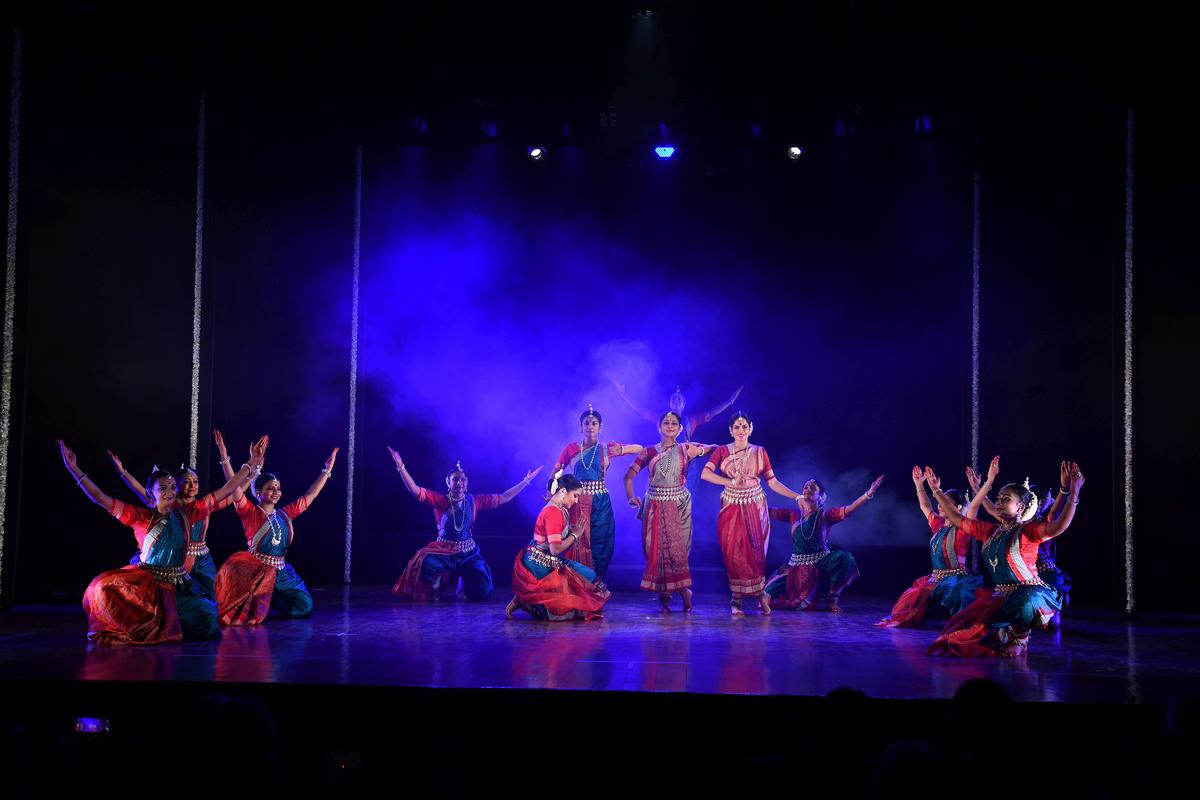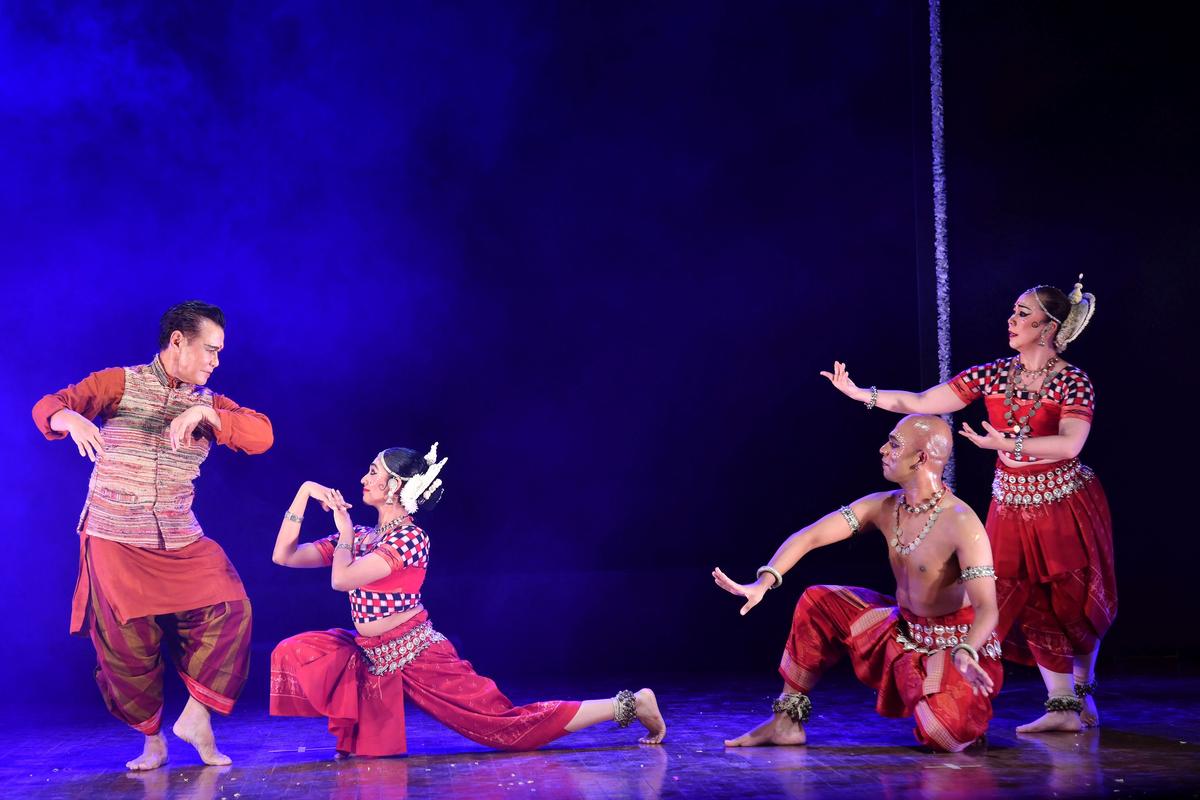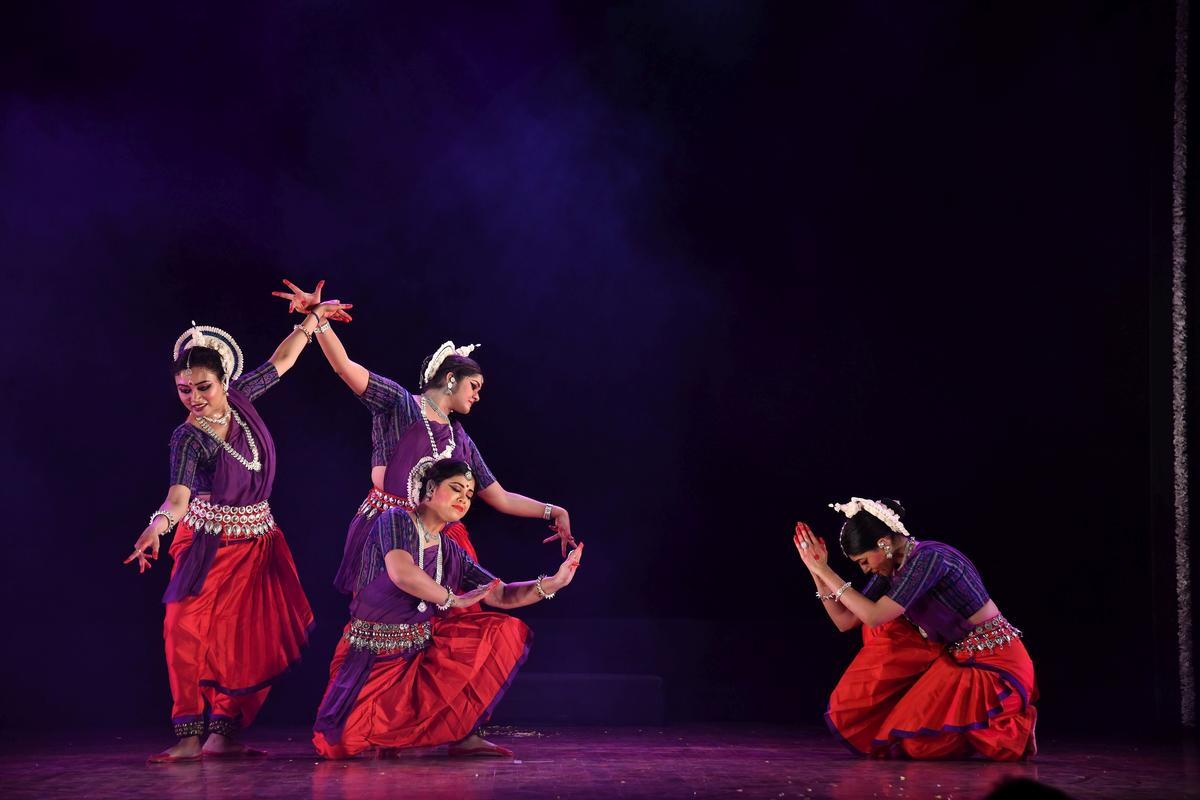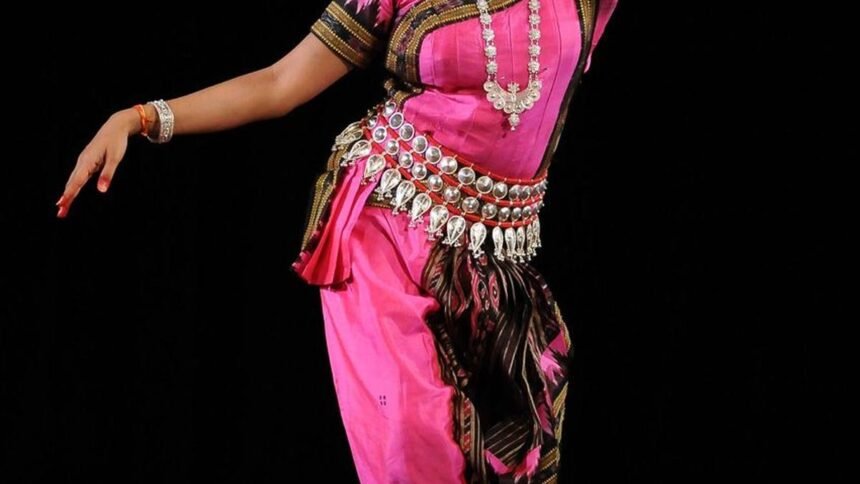[ad_1]

Odissi dancer Madhulitha Mohapatra, curated a two-day Naman festival recently in Bengaluru.
| Photo Credit:
Special Arrangement
Odissi, one of the classical dance forms, is marked by graceful postures, emotive facial expressions, bright costumes, and make-up. Pallavi, Ashtapadi, and Oriya poems, and Chaukha and Tribhanga stances form the basic movement through which Odissi dancers convey emotions, depict various characters, and tell stories. The myriad facets of this dance style were explored through a series of performances at this year’s edition of ‘Naman’ festival, curated by Madhulita Mahopatra in Bengaluru, under the banner of her dance school Nrityantar Academy of Performing Arts.
Spread over two days, the festival showcased performances by some of the eminent Odissi dancers from across the globe, and also platformed young dancers, who are training under Madhulita.
Day two of the festival featured students of Nrityantar Ensemble who revisited the Ramayana in their production ‘Siya Ram- The Eternal Saga’. The visualisation, showcasing Sita sitting in Asoka Vana and reminiscing about her life, quickly moved to highlight many significant moments from the epic
With inputs from Shatavadhani Ganesh Bhat Koppalatota, and Odiya poet Kidar Mishra, the events unfolded seamlessly. Through vibrant musical score and fine choreographic pattern it sustained the audience’s interest throughout.
Madhulita’s Siya Ram

Siya Ram: The Eternal Saga presented by Madhulita Mohapatra and her studnets of Nriyantar Academy of Performing Arts at the Naman festival 2024, in Bengaluru.
| Photo Credit:
Srivatsa Shandilya.
The dancers’ commitment was evident in the way they moved through varied sequences in quick succession. . Madhulita’s gentle and sensitive portrayal of Sita, combined with the depiction of other characters — the calm and dignified Rama by Reshmi Divakaran; the power and vigour of Ravana by Sahana Raghavendran; and the flighty deer Maricha by Mandana Sasikumar — as well as the role of Hanuman, Surpanaka and Jatayu were compelling performances.
The dancers were Nandhana Sasikumar, Aditi Das, Prishna Sinha, Anupama Kumar, Angelena Avnee, Sunana Das and Soni Tarasia.
Rupak Kumar Parida’s ragamalika-talamalika musical soundscape and Dyaneshwar Swain’s rhythm composition captured the essence of each sequence well. Costumes and lighting design further enhanced the impact.
Ramli Ibrahim’s ‘Invitation to Odissi’
The next performance of the evening, ‘An invitation to Odiisi’, was by Ramli Ibrahim and his Sutra Dance Theatre. They presented Mangalacharan (Ganga Taranga), Sthai, ashtapadi Lalita Lavanga and Suryastaka, from Ramli Ibrahim’s guru Debaprasad Das’s repertoire. Guru Debaprasad was known for his signature style that emphasised on the powerful and dynamic stances of the Odissi style.
Ramli, as Sutradar, danced in a dignified manner, weaving his way in and out during significant moments narrating the flow of events. A depiction of the descent of the Ganga, and the emergence of Vickneswaran from the rear as Shiva, were powerful depictions.

Ramli Ibrahim and students of Sutra Dance Theatre chose four compositions from guru Debendar Das’s repertoire for their thematic performance at Naman festival in Bengaluru.
| Photo Credit:
Srivatsa Shandilya
In another composition, the temple sculptures seemed to come alive with graceful moments that alternated between the sculptor and the sculpture, accentuating the inherent beauty of this dance style. The dancers Tan Mei Mei, Geethia Shri and Vickneswaran conveyed the theme effectively through mime and movement.
Devjani Sen’s ‘Rasamanjari Pallavi’

Devjani Sen and students Akshata Tirumale, Anavi Mullick and Sohini Guha presenting the Rasamanjari Pallavi at the Naman festival in Bengaluru.
| Photo Credit:
Srivatsa Shandilya.
The evening concluded with the performances by Devjani Sen and students of her dance school, Odissi Dance Centre. Akshata Tirumale, Anavi Mullick and Sohini Guha presented ‘Rasamanjari Pallavi’, which brought out the grace of Tribhangi and Chauka dance movements in an aesthetic manner. This was followed by a dance presentation based on ‘Hanuman Chalisa’. Set to Ragmalika-talmalika, and choreographed by Devjani Sen, the exploration was inspiring, but it didn’t quite lend itself to dance.
Beginning from capturing the essence of The Ramayana, to revisiting the choreography of guru Debaprasad Das, and weaving a rich tapestry to depict Hanuman Chalisa, the two-day festival ‘Naman‘ brought out the beauty and grace of Odissi dance. to the rasikas in Bengaluru.
Published – October 07, 2024 05:33 pm IST
[ad_2]
Source link




